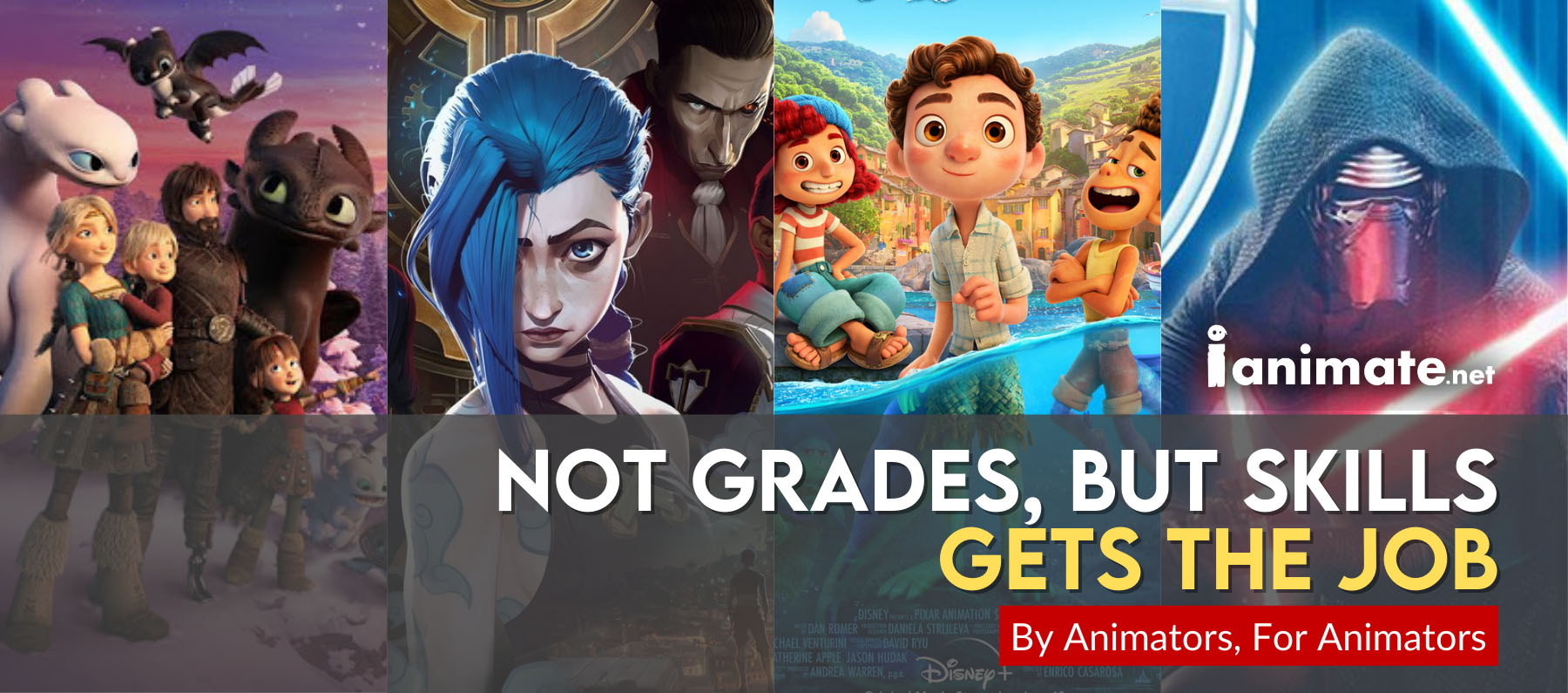How to Choose the Right Animation Career Path?
Article by Richard Arroyo & iAnimate Team
Unlock your animation potential with expert guidance from industry professionals at our workshops. Know how to choose the right animation career path today!

Animation is a captivating field that offers a diverse range of career opportunities. Whether you're drawn to traditional hand-drawn animation, cutting-edge 3D animation, or the whimsical world of stop-motion, there's a path for everyone. However, with so many options available, it can be overwhelming to decide which direction to take. In this article, we'll explore the steps you can take on how to choose the right animation career path for you.
Introduction: Exploring the World of Animation
Animation is a dynamic and ever-evolving art form that encompasses a wide range of techniques and styles. From classic Disney films to blockbuster Pixar movies, animation has the power to captivate audiences of all ages. Whether you're interested in creating visually stunning special effects or bringing characters to life through movement, animation offers endless possibilities for creative expression.
2. Understanding the Different Career Paths in Animation
Before embarking on your animation journey, it's essential to understand the various career paths available. Traditional animation involves hand-drawing each frame, while 3D animation utilizes computer-generated imagery to create lifelike characters and environments. Stop-motion animation involves manipulating physical objects frame by frame, while visual effects (VFX) are used to enhance live-action footage with digital elements.
3. Assessing Your Skills and Interests
Once you have a basic understanding of the different animation techniques, it's time to assess your skills and interests. Take stock of your strengths and weaknesses and consider which aspects of animation you enjoy the most. Do you have a knack for drawing intricate details, or are you more interested in mastering complex software programs? Researching various animation techniques can help you identify which path aligns best with your talents and passions.
4. Exploring Educational Opportunities
While some animators are self-taught, many choose to pursue formal education to hone their skills. Art schools and colleges offer programs in animation, where you can learn from experienced professionals and collaborate with fellow students. Additionally, there are numerous online courses and animation workshops available, allowing you to learn at your own pace from the comfort of your home.
5. Building a Portfolio
A strong portfolio is essential for showcasing your skills and attracting potential employers. Select your best work and organize it in a visually appealing manner, highlighting your strengths as an animator. Tailor your portfolio to your desired career path, whether it's character animation, visual effects, or motion graphics. Remember to update your portfolio regularly as you continue to grow and develop as an artist.
6. Networking and Internships
Networking is crucial in the animation industry, where connections can lead to valuable opportunities. Attend industry events, and animation podcasts, join online forums, and connect with professionals on social media platforms like LinkedIn. Internships are also an excellent way to gain hands-on experience and make valuable contacts in the industry.
7. Keeping Up with Industry Trends
The field of animation is constantly evolving, with new techniques and technologies emerging all the time. Stay up to date with industry trends by following blogs, forums, and social media accounts dedicated to animation. Attend conferences and events to learn from industry experts and connect with like-minded individuals.
8. Making the Decision
Choosing the right animation career path requires careful consideration and self-reflection. Consider the pros and cons of each path, as well as your long-term goals and aspirations. Remember that it's okay to change direction if you discover that your interests lie elsewhere. Set realistic goals and expectations for yourself, and don't be afraid to seek guidance from mentors and peers along the way. Be guided with iAnimate, we are helping and leading aspiring animators to the right career path by giving them the knowledge that they need to become professional animators.
9. Conclusion: Choosing the Right Animation Career Path
In conclusion, choosing the right animation career path is a deeply personal decision that requires careful thought and consideration. By exploring your skills and interests, seeking out educational opportunities, and networking with industry professionals, you can find the path that's right for you. Whether you dream of working for a major animation studio or striking out on your own as a freelance artist, the world of animation is full of possibilities for those with creativity and passion.
FAQs (Frequently Asked Questions)
Q1: What skills do I need to succeed in the field of animation?
A: While specific skills may vary depending on your chosen career path, common skills include drawing, storytelling, time management, and proficiency in animation software.
Q2: Is a degree in animation necessary to find work in the industry?
A: While a degree can be beneficial, many animators are self-taught or have backgrounds in related fields such as fine arts or graphic design. What's most important is a strong portfolio showcasing your skills and creativity.
Q3: How can I stand out as an animator in a competitive industry?
A: Focus on developing your unique artistic style and storytelling abilities. Collaborate with other artists, seek feedback from mentors, and never stop learning and improving your craft.
Q4: What are some common misconceptions about careers in animation?
A: One common misconception is that animation is only for children's entertainment. In reality, animation is a versatile medium used in film, television, advertising, and video games, with opportunities for artists of all ages and backgrounds.
Q5: What advice do you have for aspiring animators just starting?
A: Don't be afraid to take risks and experiment with different styles and techniques. Stay persistent, be open to feedback, and never stop pursuing your passion for animation.






